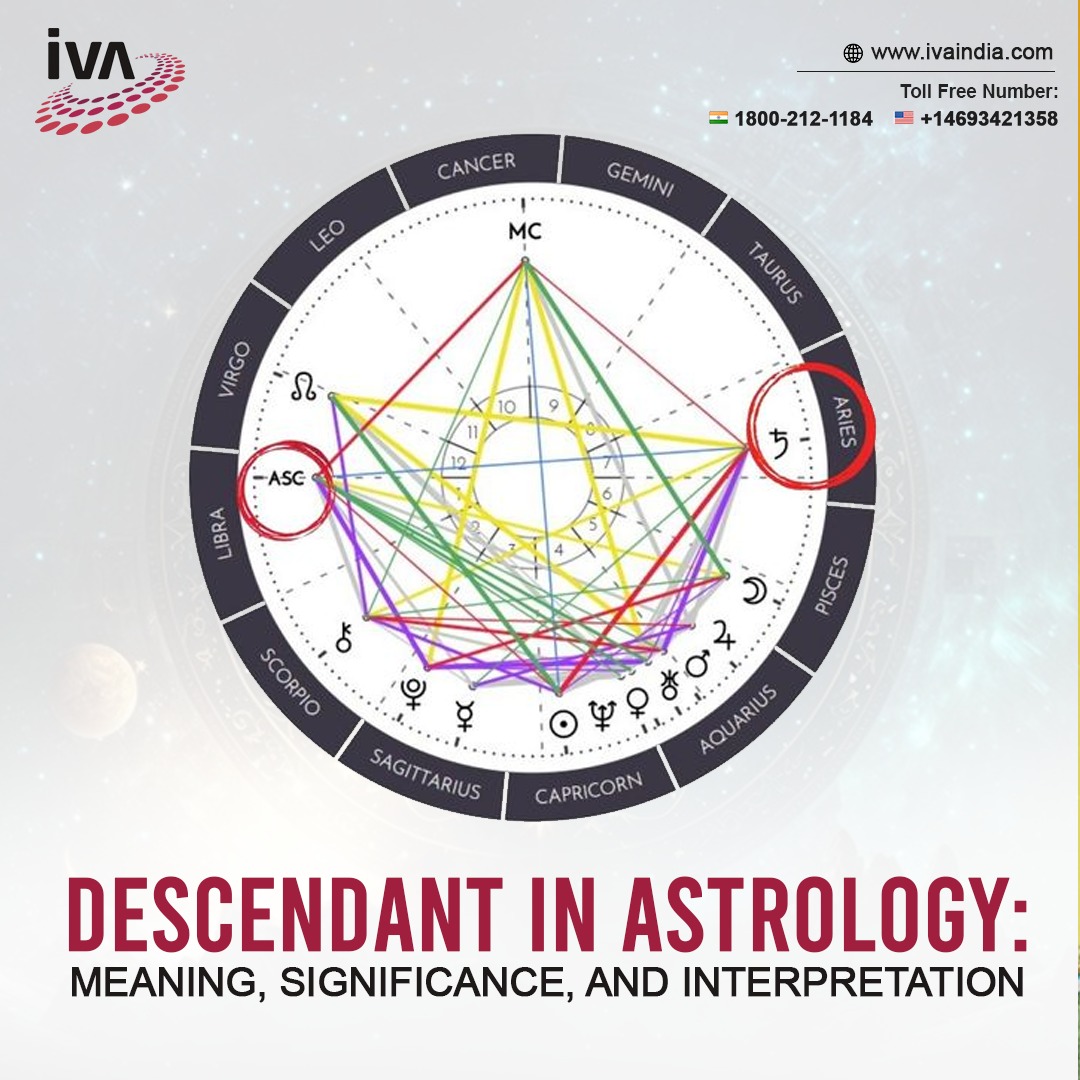Astrology has fascinated humans for centuries, providing unique insights into our personalities, behaviors, and potential futures. However, in our modern world where misinformation often reigns, it is crucial to navigate the practice of astrology with responsibility and respect. This article delves into the importance of ethical considerations in astrology, exploring how practitioners can uphold integrity, maintain confidentiality, and approach sensitive topics with sensitivity. Whether you’re a seasoned astrologer or simply curious about this ancient art, understanding and embodying ethical principles can help ensure that astrology remains a trusted and valuable tool for self-reflection and guidance.
1. The Importance of Ethics in Astrology
Astrology is a unique field that holds great significance in many people’s lives. As an astrologer, it is essential to understand the impact astrology can have on individuals and society as a whole. Ethical practices are crucial in ensuring that astrology remains a respected and trusted profession. By adhering to ethical principles, astrologers can foster healthy relationships with their clients, maintain professionalism, and contribute to the overall well-being of the astrological community.
1.1 Understanding the Impact of Astrology
Astrology has the power to influence people’s beliefs, thoughts, and actions. Many individuals turn to astrology seeking guidance and understanding in various aspects of their lives. Therefore, it is vital for astrologers to recognize the importance of their role and the potential impact they can have on their clients’ lives. By approaching astrology ethically, astrologers can provide clarity, support, and empowerment to their clients, helping them navigate life’s challenges with confidence.
1.2 Respecting the Clients
Respect forms the foundation of ethical astrology practice. Every client deserves to be treated with dignity, regardless of their background, beliefs, or personal circumstances. It is essential to establish a safe and inclusive space that allows clients to express themselves openly without fear of judgment or discrimination. Astrologers should actively listen to their clients, validate their experiences, and honor their unique perspectives. By developing a respectful and empathetic connection, astrologers can create a supportive environment where clients feel seen, heard, and understood.
1.3 Maintaining Professionalism
Professionalism is essential for establishing trust and credibility within the astrology community. Astrologers should maintain a high standard of conduct, ensuring that their actions align with ethical principles. This includes being punctual, prepared, and organized in all interactions with clients. Professionalism also involves setting clear boundaries, managing expectations, and communicating openly and honestly. Respecting client confidentiality and being transparent about fees and services are further aspects of maintaining professionalism in astrology.
2. Honesty and Accuracy in Astrological Predictions
In astrology, honesty and accuracy are fundamental principles that guide astrological predictions. Astrologers must adhere to these principles to ensure the integrity of their readings and consultations.
2.1 Avoiding False Promises
Astrologers should avoid making false promises or guarantees about the accuracy or outcomes of their predictions. While astrology provides valuable insights, it is important to emphasize that it cannot predict specific events or guarantee desired outcomes. Honesty and transparency should be maintained when discussing the limitations of astrology and the inherent uncertainties that come with interpreting the cosmos.
2.2 Staying True to Astrological Knowledge
Astrologers must stay true to the principles and knowledge of astrology while providing predictions and interpretations. It is unethical to distort or manipulate astrological information to fit personal biases or the expectations of clients. Being well-versed in astrology and continually expanding knowledge through research and study is essential to provide accurate and meaningful readings.
2.3 Ethical Use of Transits and Retrogrades
Transits and retrogrades are significant astrological phenomena that can greatly impact individuals’ lives. It is crucial for astrologers to use these astrological events ethically and responsibly. While it is important to educate clients about the potential effects of transits and retrogrades, astrologers should avoid fear-mongering or exploiting these periods for personal gain. Instead, the focus should be on providing guidance and empowering clients to navigate these celestial influences with resilience and self-awareness.

This image is property of media.wired.com.
3. Protecting Client Confidentiality
Client confidentiality is a cornerstone of ethical astrology practice. Astrologers must prioritize the privacy and confidentiality of their clients’ information to foster a safe and trusting environment.
3.1 The Duty of Astrologers
Astrologers have a professional duty to protect the confidential information shared by their clients. This duty extends beyond the individual sessions and includes safeguarding any records or documents containing client information. Astrologers must ensure that client data is securely stored and protected from unauthorized access or disclosure.
3.2 Informed Consent and Privacy
Respecting client privacy starts with obtaining informed consent. Astrologers should clearly explain the limits of confidentiality to their clients and seek their explicit consent before sharing any information publicly or with third parties. It is important to have an open and honest dialogue with clients about the purposes and potential risks of sharing their astrological charts or readings.
3.3 Handling Sensitive Information
Astrologers often deal with sensitive and personal information that clients may disclose during consultations. It is crucial to handle this information with care, sensitivity, and respect. Astrologers must refrain from sharing or discussing client information without their explicit consent. In cases where a client’s well-being or safety is at risk, professionals should follow legal and ethical guidelines in reporting or seeking appropriate assistance.
4. Cultural Sensitivity in Astrology
astrologers must approach astrology with cultural sensitivity and respect for diversity. Understanding and embracing different belief systems while avoiding cultural appropriation is crucial to maintaining ethical standards in astrological practice.
4.1 Understanding Different Belief Systems
Astrology is practiced and interpreted differently across various cultures and belief systems. To ensure cultural sensitivity, astrologers should strive to educate themselves about the diverse perspectives and interpretations of astrology. By immersing themselves in different cultural traditions, astrologers can expand their knowledge and awareness, fostering a more inclusive and respectful approach to astrology.
4.2 Avoiding Cultural Appropriation
Cultural appropriation occurs when elements of one culture are adopted without proper understanding or respect for their original meaning. Astrologers should refrain from appropriating cultural practices, symbols, or rituals without appropriate context or permission. It is important to acknowledge and honor the cultural origins of specific astrological practices and use them responsibly and respectfully.
4.3 Tailoring Astrological Interpretations
Astrology should be tailored to the individual’s unique cultural background and belief system. Astrologers should strive to provide interpretations that resonate with the client’s cultural context, taking into account their values, traditions, and worldview. This personalized approach enhances the relevance and meaningfulness of astrology, ensuring that clients feel heard and understood within their cultural framework.

This image is property of media.wired.com.
5. Ethical Boundaries with Vulnerable Clients
Astrologers often work with clients who may be vulnerable, both emotionally and psychologically. It is crucial to establish ethical boundaries to protect the well-being of these individuals and provide them with appropriate support and resources.
5.1 Proper Communication and Codes of Conduct
Astrologers should establish clear and transparent communication with vulnerable clients. Setting expectations, discussing the scope of services, and ensuring informed consent are essential components of maintaining ethical boundaries. Clear codes of conduct should be established, outlining the roles and responsibilities of both the astrologer and the client.
5.2 Recognizing Mental Health Concerns
Astrologers should be sensitive to mental health concerns that may arise during consultations. While astrology can provide valuable insights, it is not a substitute for professional mental health support. It is crucial for astrologers to recognize signs of distress or mental health issues and refer clients to appropriate professionals when necessary. Ethical astrologers prioritize the well-being of their clients above all else.
5.3 Referring Clients to Professionals
Astrologers must understand the limitations of their expertise and recognize when a client requires additional support. When faced with complex psychological or emotional issues, astrologers should encourage their clients to seek guidance from mental health professionals or other relevant specialists. By practicing referral ethics, astrologers prioritize the long-term well-being of their clients, ensuring they receive the most appropriate and comprehensive care.
6. Ethical Use of Remedial Measures
Remedial measures in astrology often involve recommending specific actions or rituals to help clients navigate challenging periods or enhance positive energies. It is crucial for astrologers to approach these measures with caution, respecting the autonomy and individuality of each client.
6.1 Approaching Remedial Measures with Caution
Astrologers should exercise discretion when recommending remedial measures. It is essential to refrain from making absolute claims or promises about the effectiveness of specific remedies. Instead, astrologers can provide clients with a range of options and techniques to consider, empowering them to make their own informed decisions based on their beliefs and values.
6.2 Respecting Individual Autonomy
Astrologers must respect the autonomy and personal choices of their clients. While suggesting remedial measures, it is vital to emphasize that they are optional and should be pursued only if they align with the client’s beliefs and preferences. Astrologers should avoid pressuring or coercing clients into adhering to specific remedies against their will.
6.3 Promoting Empowerment and Self-Responsibility
Astrologers should view remedial measures as tools for empowerment rather than dependency. The focus should be on helping clients develop self-awareness, resilience, and personal responsibility. By encouraging clients to take an active role in their own growth and development, astrologers foster a sense of agency and self-efficacy, promoting ethical and sustainable practices within astrology.

This image is property of astrologicalgemblogs.files.wordpress.com.
7. Ethical Considerations in Astrological Advertising
Astrologers should approach advertising and promotion ethically to ensure transparency, honesty, and integrity. Advertising practices should align with ethical standards and provide accurate information to prospective clients.
7.1 Transparency in Services and Fees
Astrologers must provide clear and transparent information about their services, fees, and qualifications in their advertising materials. Prospective clients should have a comprehensive understanding of what to expect from a consultation, including the duration, format, and associated costs. By being upfront and transparent, astrologers build trust and credibility, attracting clients who are well-informed and have realistic expectations.
7.2 Avoiding Misleading Claims
Astrologers should avoid making misleading claims or sensationalized statements in their advertising. It is important to present astrology as a tool for guidance, self-reflection, and empowerment rather than a guarantee of specific outcomes. By focusing on the potential benefits of astrology rather than making unrealistic promises, astrologers maintain ethical integrity and establish themselves as trustworthy professionals.
7.3 Ethics in Marketing and Promotion
Astrologers should be mindful of ethical considerations when employing marketing and promotional strategies. It is crucial to respect client privacy and obtain their consent before using any testimonials, case studies, or personal experiences in advertising materials. Astrologers should refrain from using fear tactics or exploiting vulnerabilities in their marketing efforts, instead prioritizing authenticity, empathy, and responsible communication.
8. The Astrologer’s Responsibility to Self-Development
Astrologers have a responsibility to engage in ongoing self-development to enhance their skills, knowledge, and ethical awareness. By prioritizing personal growth and self-reflection, astrologers can better serve their clients and contribute to the advancement of astrology as a profession.
8.1 Continuing Education and Skill Enhancement
Astrologers should invest in their professional development through continuous education and skill enhancement. This may involve attending workshops, conferences, or online courses to deepen their understanding of astrological techniques, theories, and research. By staying updated with the latest developments in the field, astrologers can provide more accurate and relevant insights to their clients.
8.2 Engaging in Ethical Self-Reflection
Self-reflection is crucial for astrologers to assess their personal biases, values, and ethical standards. Regular introspection allows astrologers to identify areas for growth and improvement, ensuring that their practices align with ethical principles. By engaging in ethical self-reflection, astrologers can cultivate humility, empathy, and a commitment to ongoing learning and improvement.
8.3 Building a Support System
Astrologers should seek out supportive networks and communities to foster personal and professional growth. Connecting with other astrologers, participating in peer discussions, and engaging in mentorship programs can provide valuable guidance and feedback. By building a support system, astrologers can navigate ethical challenges more effectively and maintain their well-being in a field that can be emotionally demanding.

This image is property of www.thecornrow.com.
9. Professional Associations and Ethical Standards
Astrologers can benefit from aligning themselves with professional associations that uphold ethical standards and provide guidance and resources. These associations play a crucial role in establishing professional norms and facilitating ethical practices within the astrology community.
9.1 The Role of Professional Organizations
Professional organizations provide a platform for astrologers to network, share knowledge, and collectively advocate for ethical practices in astrology. These organizations often establish codes of ethics, offer educational opportunities, and create a sense of community for astrologers. By joining and actively participating in professional associations, astrologers demonstrate their commitment to professional integrity and ethical conduct.
9.2 Following a Code of Ethics
Astrologers should familiarize themselves with the code of ethics established by their professional associations and commit to adhering to its principles. These codes typically outline the expected standards of behavior, responsibilities toward clients, and guidelines for professional conduct. By following a code of ethics, astrologers hold themselves accountable to a higher standard, ensuring that their professional practices align with ethical principles.
9.3 Seeking Guidance and Mentorship
Astrologers, particularly those new to the field, can benefit from seeking guidance and mentorship from experienced practitioners. Mentors can offer valuable insights, practical advice, and ethical guidance based on their own experiences. Adequate mentorship can help astrologers navigate ethical dilemmas, enhance their skills, and establish a strong foundation for their professional journey.
10. Challenges and Ethical Dilemmas in Astrology
Astrologers often encounter various challenges and ethical dilemmas in their practice. It is important for astrologers to be aware of these dilemmas and have strategies in place to address them effectively.
10.1 Addressing Ethical Concerns in Practice
Astrologers should be proactive in identifying and addressing ethical concerns that arise in their practice. This may include dilemmas related to client confidentiality, conflicts of interest, or cultural sensitivities. By seeking guidance from mentors, professional organizations, or ethical consultants, astrologers can navigate these challenges and ensure their practices adhere to ethical standards.
10.2 Balancing Personal Beliefs with Client Needs
Astrologers may encounter situations where their personal beliefs or biases conflict with the needs and perspectives of their clients. It is essential to recognize and manage these conflicts ethically. Astrologers should prioritize clients’ well-being, respect their autonomy, and provide unbiased interpretations and guidance. By maintaining professionalism and ensuring client-centered practices, astrologers can navigate these challenges while upholding ethical integrity.
10.3 Seeking Consultation and Peer Support
When faced with complex ethical dilemmas, astrologers should not hesitate to seek consultation and support from peers or ethical consultants. Engaging in discussions, seeking different perspectives, and exploring ethical considerations collectively can provide valuable insights to resolve dilemmas effectively. By fostering a culture of open dialogue and collaboration, astrologers can support each other in navigating ethical challenges and enhancing the ethical standards within the field.
In conclusion, ethics in astrology are of utmost importance for maintaining a reputable and trusted profession. By understanding and embracing the impact of astrology, respecting clients, maintaining professionalism, and adhering to ethical principles, astrologers can create a safe and empowering space for their clients. From honest and accurate predictions to protecting client confidentiality, cultural sensitivity, and ethical boundaries with vulnerable clients, astrologers have a responsibility to approach their practice with integrity. By continuously seeking self-development, aligning with professional associations, and addressing ethical challenges, astrologers can navigate the complex terrain of astrology ethically and responsibly.

This image is property of cdn3.shopvii.com.

